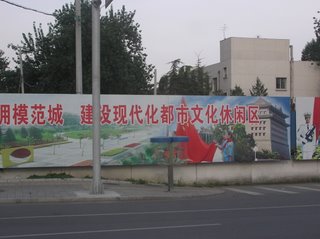
Curiosity rewarded the biochemist / Review of 'For the Love of Enzymes: The Odyssey of a Biochemist' by Arthur Kornberg
05 August 1989
MAXINE CLARKE
New Scientists Magazine issue 1676
For the Love of Enzymes: The Odyssey of a Biochemist by Arthur Kornberg, Harvard UP, pp 336.
'CREATION of life rated best of science stories in 1967 . . . human heart transplant second.' When Arthur Kornberg and his group synthesised self-replicating DNA, the press went wild. Although by the mid-1960s the structure of DNA was known and its ability to replicate had been observed many times, Kornberg's landmark experiment demonstrated from first principles how DNA is constructed and confirmed people's idea about how it worked, not to mention providing a rich seam of new discoveries to come. In his wonderful autobiography, Kornberg takes the reader on a journey through his scientific life. Always modest, yet with dedication and intensity apparent on every page, Kornberg's account is more gripping by far than the half-understood hyperbole of the hack.
My impression of this book
I have only finished reading chapter one 'Vitamins Hunters'. In this chapter, Kornberg brings us back to the history of the discovery of the biochemical importance of various vitamins in human body. Most students come across the functions of vitamins in junior form biology. They treat this topic as mere hard fact and simply memorize the functions of vitamins for the sake of preparing for the examination. There is hardly any students showing interest in the history of this scientific discovery and none of them raise questions concerning the difficulties encountered throughout the process of discovery.
I am not here to blame my students because I am not doing better either. Students in Hong Kong are not used to ask questions challenging what is printed in textbooks. Most local textbooks are examination oriented and they only list the gist of certain concepts but never stimulate students to think about the whole picture of the scientific discovery. Concerning the topic of vitamin functions, most textbook only devote one or two pages on hard facts but never on the history of the scientific breakthrough.
Back to this book, 'For the love of enzymes', the author delineates the challenge and difficulties faced by scientists in the discovery of the biochemical roles of vitamins in our body. Here I would like to take one example, beri-beri. Today, even a junior form student can tell you that Beri-beri is caused by the lack of vitamin B. 100 years ago, It was quite common for servicemen of the Japanese Navy to suffer from beri-beri. Naval doctor K. Takaki found that their English counterparts feeding on raw grains are less likely to develop beri-beri. Japanese Naval servicemen feeding on refined grains are more likely to suffer from beri-beri. Under the backdrop of a significant scientific breakthrough at that time - microbial origin of diseases, Dr. Takaki jumped to the conclusion that beri-beri is caused by a microbe or bacterial toxin found in refined grains. Pekelharing from Netherlands claimed that he successfully extracted the bacilli causing beri-beri from patients' blood but he failed to induce beri-beri in animals by using this bacterium. The role of vitamin B in preventing beri-beri was confirmed only after generations of toils and tears shed by scientists in the laboratories. It took years of arguments before the concept of 'vitamin deficiency diseases' became endorsed by the scientific institutions.
The above is only a brief history of a scientific discovery but we can see how the old thought or authoritative ideas could hamper the search of truth in science.
'In science, the credit goes to the man who convinces the world, not to the man to whom the idea first ocurs.'
by Francis Darwin



 周日天公造美,決定和太太、女兒到濕地公園遊覽,順便給女兒上一課基礎生態學。我門早上十時到達公園,遊人不算多,剛巧館內電影院即將放映一段關於濕地生態的電影,大夥兒選了前排座位,欣賞片長二十多分鐘的電影,影片拍得很有水準,對推廣生態教育有一定作用。
周日天公造美,決定和太太、女兒到濕地公園遊覽,順便給女兒上一課基礎生態學。我門早上十時到達公園,遊人不算多,剛巧館內電影院即將放映一段關於濕地生態的電影,大夥兒選了前排座位,欣賞片長二十多分鐘的電影,影片拍得很有水準,對推廣生態教育有一定作用。



